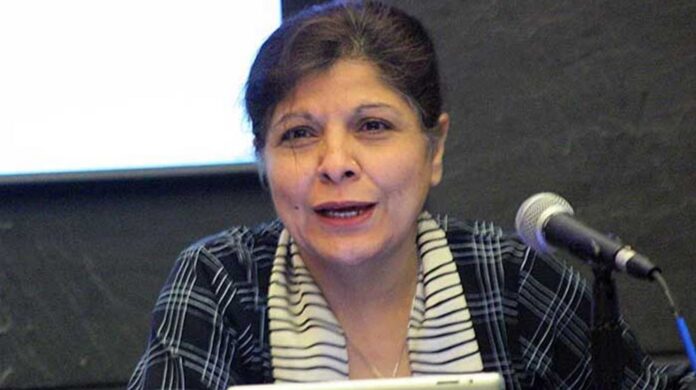On Thursday, Dr. Shamshad Akhtar, the acting finance minister, stated that if she is given additional time, she will talk about a new programme with the International Monetary Fund (IMF).
Speaking to reporters today at the Finance Division, the minister made this statement. Although she acknowledged that Pakistan’s economy has improved, she emphasised the necessity of ongoing efforts to improve economic circumstances and the significance of Pakistan’s continued participation in the IMF programme. According to her, participating in the programme is essential until exports rise and the production of local resources continues.
The minister stated that new taxes may be levied by the government on a number of industries, including retailers and real estate. Should there be a deficiency in tax income, further actions would be taken to fulfil financial commitments. She continued by saying that, in order to close the budget deficit, the government has decided to postpone issuing a $1.5 billion sovereign bond for the time being.
The finance minister expressed optimism that the agreement at the IMF staff level would result in an improvement to the nation’s credit rating. Addressing financial inflows, she said Pakistan may receive $2 billion from the World Bank this year and another $1 billion from the Asian Development Bank (ADB), the Islamic Development Bank, and the Asian Infrastructure Bank.
The minister emphasised how important it is to finish the present IMF programmeme and said that if she is granted additional time, she might be able to start talks with the IMF about a new programmeme.
She also mentioned that work will shortly begin on the $1.1 billion last tranche under the IMF SBA. There is some leeway in handling the next economic issues, as the IMF has not imposed any preconditions on the second tranche of $700 million.
Policy Objectives for Stability in the Economy
The staff-level agreement reached on Wednesday was recognised by the acting minister as a critical first step towards stability. Important measures implemented under the standby arrangement, according to her, have improved the general business climate and given investors more confidence. In recognition of the nation’s commitment to economic transformation, foreign allies have also offered help.
She continued by saying that the government would keep working towards macroeconomic sustainability and balanced growth, acknowledging that it faces external challenges including rising commodity prices, geopolitical tensions, and difficult global conditions. She listed the following eight goals for policy to support the economy:
1. Fiscal Consolidation and Development: Through fiscal consolidation, the government hopes to lower the national debt, manage spending, boost income, and raise the standard of public investments.
2. Social Safety Net: Increasing the percentage allotment to the social safety net will be a priority, with a focus on safeguarding the most vulnerable populations. To assist more families, initiatives such as the Unconditional Cash Transfers (UCT) Kafaalat Programme would be expanded.
3. Energy Sector Reforms: As part of the IMF Standby Arrangement, the government has pledged to cut energy sector expenses, assess the industry’s viability, and move quickly to lower the power and gas industries’ revolving debt.
4. Market-Determined Exchange Rate: The government indicates that it would want to keep the foreign exchange reserves growing and maintain the market-determined exchange rate policy.
5: Proactive Monetary Policy: Setting the goal of restoring target levels of inflation through a proactive monetary policy
6: Financial Sector Resilience: The goal of this initiative is to strengthen the financial sector’s resilience and preserve the stability of the banking system.
7. State-Owned Enterprise (SOE) and Governance Reforms: Stressing the need to keep up governance and SOE reforms in order to enhance the business climate, draw in investment, and provide employment opportunities. The SOE Policy is being implemented, and part of it includes the privatisation of certain SOEs.
8. Foreign collaboration: In order to provide timely external assistance that is essential for policy and reform initiatives, the government seeks to strengthen its collaboration with foreign partners by interacting with both official bilateral and multilateral partners.
Dr. Akhtar expressed hope that these policy changes will solve issues and promote a more resilient and prosperous future for the nation while promoting economic stability and steady growth.






